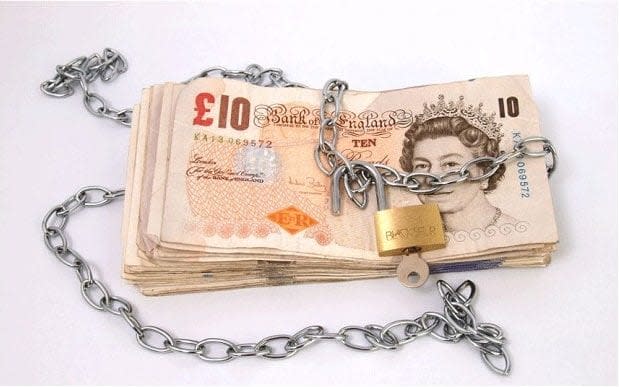Fixed-rate accounts reach two-year highs: here are the best

The rates of fixed-term savings bonds continue to creep upwards, with the most competitive accounts now all offering an annual interest rate of over 2pc.
Competition is being driven by a number of small, online only banks which savers may not be familiar with.
Check if the providers are covered by the Financial Compensation Services Scheme, which protects up to £85,000. Some European banks which "passport", meaning they have a UK division, may subscribe to a similar scheme in their home country. If it goes bust, you may face exchange rate and language issues and it may take longer to get your money back.
By tying up funds in fixed savings bonds, customers can guarantee the rate for the term and protect themselves against future cuts.
Savers who have used up their cash Isa subscription for this tax year (£20,000), and want to deposit any extra savings into fixed-rate bonds or easy-access savings accounts, should read this guide (which will be updated as deals change) to find out the best rates on offer.
It's part of our series of articles that highlight the best savings deals – and expose the catches.
Best fixed-rate bonds
ONE YEAR
Challenger Atom Bank pays a top rate of 2.05pc.
Accounts can be opened online or through mobile banking for a minimum of £50, and a maximum investment of £100,000.
Up to £85,000 will be protected by the Financial Services Compensation Scheme (FSCS).
TWO YEARS
Atom Bank also offers the best rate of interest on a two-year account that pays out 2.15pc.
Both OakNorth and PCF Bank offer a rate of 2.15pc for a slightly longer duration 30-month bond account.
THREE YEARS
The top three-year bond is offered by RCI Bank, which pays 2.31pc.
Accounts can be opened online with £1,000, and you can invest up to £1m.
Deposits held with RCI Bank are covered up to the value of €100,000 (£88,185) by the FGDR, which is the French equivalent of the FSCS.
FOUR YEARS
Vanquis Bank Savings offers a four-year account with a rate of 2.47pc.
Accounts can be opened online with £1,000 and can also be managed by post or phone.
Interest can be paid wither on a monthly or annual basis, and accounts can be held jointly as well as individually.
FIVE YEARS
Vanquis BankSavings also offers one of highest five-year fixed-rate accounts with a rate of 2.66pc.
Both Secure Trust Bank and Paragon also offer a rate of 2.66pc if you lock your cash away for five years, and you will need a minimum of £1000 to open each account.
• The best of Telegraph Money: get our weekly newsletter
Have a question for our experts? Email moneyexpert@telegraph.co.uk

 Yahoo Finance
Yahoo Finance 